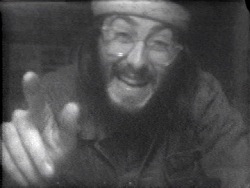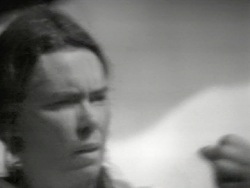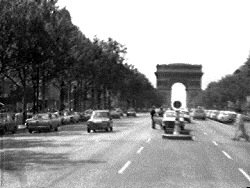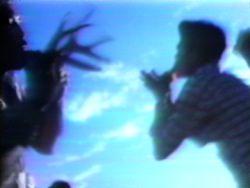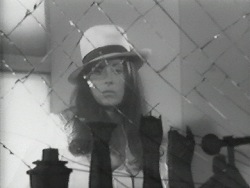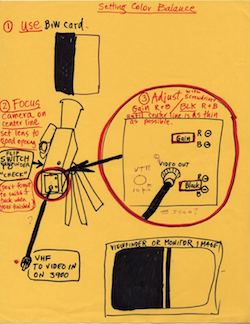
"Edited at EAI": 1972-77
"Edited at EAI": 1972-77
535 W. 22nd St. 5th Floor
New York, NY 10011
Noon - 8pm
"Edited at EAI": 1972-77
535 W. 22nd St. 5th Floor
New York, NY 10011
Noon - 8pm
"Edited at EAI": 1972-77
535 W. 22nd St. 5th Floor
New York, NY 10011
Noon - 8pm
Works
Ramos' astute deconstruction of television news focuses on the media coverage of President Jimmy Carter's 1977 declaration of amnesty for Vietnam War draft resisters, and his personal involvement with the issue. Ramos, who had served an eighteen-month prison sentence for draft resistence, was...
Ant Farm's Dirty Dishes is a freewheeling portapak time capsule that captures the collective spirit of Ant Farm's life and work in California in the early 1970s. The artists use the early portable camera as an interactive sketchbook. Writes Chip Lord: "It's an anthology of clips from the first year of living with a Portapak and it gives a fairly good representation of the way we lived in those days - collectively, loosely, improvisationally."
Attention, Focus, and Motion is one of Lucier's earliest black and white experiments with video technology and natural phenomena. Introducing themes that resonate throughout her work, Lucier investigates the intersection of landscape, motion and vision.
This early video document is Kubota's answer to the question, "What happens if you travel with a portapak instead of American Express through Europe?" Spontaneous, low-tech and infused with a spirit of uncensored adventure, Kubota's video travel diary is a personal and cultural time capsule of...
Continuing Downey's Trans Americas series, Guahibos documents the artist's journey down the Middle Orinoco River of Venezuela and his encounter with the Guahibo people. Part anthropological record, part personal odyssey, this subjective document parallels the divided cultural identity of the...
In this classic video verité documentary, Cort records a demonstration against the Vietnam War in Washington D.C. on May Day, 1971. Describing the event as "a day filled with moments of expectation and violence," he focuses on the dynamics of the demonstration and the police response. Armed with...
Philly documents a 1976 performance at the Philadelphia Museum of Art, in which Wilke interacts with Marcel Duchamp's Large Glass. Edited by John Sanborn, the piece juxtaposes behind-the-scenes dialogue and preparations with the performance itself, showing us a playful Wilke.
Raindance's Media Primers reflect the group's iconoclastic theories of television and video, and their engagement with alternative and mass media, pop culture and the counter-culture. The themes addressed — media manipulation, the camera's role in modifying individual behavior — illustrate their experimentation with the technological and conceptual underpinnings of 1/2-inch portable video.

